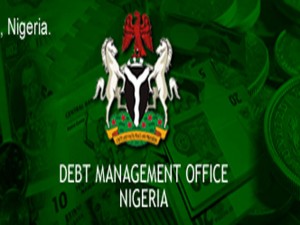
Despite assurances by the Debt Management Office (DMO) that the current external debt stock of $6.92 billion is well within sustainable level, the Central Bank of Nigeria (CBN) has raised the alarm, saying it is putting pressure on the economy.
The economy came under intense pressure in the second quarter of the year, as overall balance of payments recorded a 4.1 per cent deficit of the gross domestic product (GDP) amid a 6.1 per cent decline in external reserves and a slide in trade balance from 15.8 per cent in the first quarter to 8.9 per cent.
In addition, total stock of external debt showed signs of significant pressure, with an upward movement to $6.92 billion during the period.
‘Balance of Payments’ is aggregate international monetary transactions by a country, including imports and exports of goods and services with other countries within a specified period of time, while the monetary value of the transactions represents the ‘balance of trade’.
The latest report by the Central Bank of Nigeria, CBN, on Nigeria’s External Sector Development published last month showed that external reserves, which stood at about $47.88 billion in the first quarter of the year, dropped to about $44.96 billion during the period.
It attributed the drop mainly to the sales of foreign exchange to authorised dealers, payments of joint venture companies (JVC) cash calls as well as public sector payments, though it also showed that the ratio of short-term capital flows to external reserves increased from 14.2 per cent in the previous quarter to 14.5 per cent.
The report noted that the significant pressure on the economy as a result of the poor external sector performance has made it necessary that a comprehensive backward integration production strategy be put in place by government to promote domestic manufacturing output and cut down on excessive import bills, particularly on petroleum products.
Apart from taking steps to ensure the rehabilitation of the country’s refineries to function optimally and ensure adequate domestic supply of petroleum products, the report also called for more emphasis to be placed on value-reorientation towards increased patronage for domestically produced goods.
The country’s estimated current account balance, currently at $5.01 billion, the report said, declined by 26.3 per cent from the $6.68billion level attained during the first quarter; a development traced to the higher import bills and lower export earnings arising from the decline in crude oil production from 2.05 million barrels per day, MBPD, at the beginning of the year to 1.93 MBPD due to production shut-ins and crude oil theft.
Details of the report showed that the country’s aggregate imports increased by 21.3 per cent from $11.30 billion recorded in the previous quarter to $13.71 billion, a decline of 11.7 per cent when compared with the level recorded in the corresponding period last year.
Similarly, aggregate exports declined by 6.4 per cent when compared with the preceding quarter, though the report noted that the deficit in the income account narrowed significantly from $4.97 billion recorded in the first quarter to $2.95 billion owing to lower repatriation of dividends and distributed profits by foreign investors.
Estimated capital and financial accounts balance recorded a net liability of $3.54 billion, which was equivalent to 5 per cent of GDP, compared to net asset of $2.19 billion. Total financial asset, representing financial outflows, declined by 46 per cent, following the decline in external reserves.
Again, direct investment abroad during the period under review declined from $0.36 billion to $0.15 billion on account of the sluggish global economic recovery, while portfolio investment abroad recorded significant growth from $1.07 billion to $2.72 billion, reflecting the desire of Nigerians in the Diaspora to take advantage of the cheaper
financial assets abroad.
“Total financial liabilities representing financial inflows increased by 2.8 per cent, when compared with the levels recorded in Q1 2013,” the report said, adding that foreign direct investment, FDI, inflows increased from $1.29 billion recorded previously to $1.47 billion in the review period due to renewed confidence of foreign investors and conducive macroeconomic environment.
In addition, short-term capital inflows declined by 4.4 per cent, while the net FDI for Q2 2013 was $1.32 billion, as against $0.94 billion in Q1 2013, with net portfolio investment dropping from $5.76 billion in Q1 2013 to $3.81 billion during the period under review.
Estimated trade balance declined from $9.80 billion in Q1 2013 to $6.34 billion in Q2 2013 as a result of the decline in aggregate exports proceeds and surge in imports, with aggregate exports down by 6.4 per cent, to $21.16 billion, compared with the levels in the preceding quarter, and aggregate imports increasing by 11.6 per cent from $11.30 billion in Q1 2013 to $13.71 billion in the review period.
